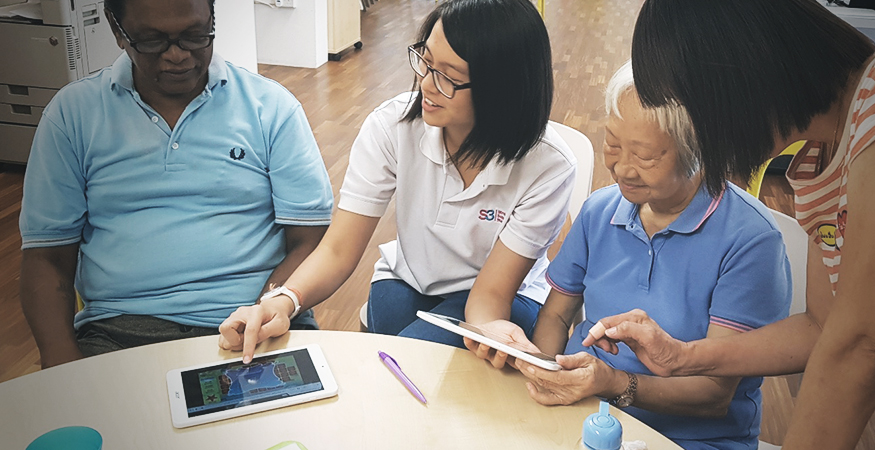Problem Statement
Lack of a Holistic Service Program to Aid Both Physical and Cognitive Recovery of Stroke Patients
Approximately half of the stroke patients develop mental and thinking problems after stroke and this hinders recovery.It also disempowers them from gaining independence in functioning and resuming their social and occupational roles. With a rapidly ageing population, the burden of stroke care is expected to increase exponentially, posing significant challenges to the healthcare system and society.
Solution
Delivering a one-stop brain health service program for stroke patients
The program aims to establish a community-based cognitive test for work evaluation and early intervention through group-based brain training and health education services.
It will empower the family of stroke patients through health education to better support the stroke patients in their recovery and help stroke patients to improve their memory and thinking skills to maintain functional independence and prevent decline.
Outcomes
Stroke patients are able to improve their memory and thinking skills, thus they are able to become more independent and make well-informed decisions.
-
Grantee
Office of Deputy President – R&D, National University of Singapore (NUS) -
Beneficiaries
Persons with Disabilities (stroke surviors) & Caregivers
more about grantee
A multidisciplinary team consisting of a clinical neuropsychologist, advisors from NUHS and S3 Stroke Support Station, nurses and a clinical psychologist. The Principal Investigator or Project Lead, Dr Catherine Dong, is a National Medical Research Council Returning Fellow and a Clinician Scientist at Division of Neurology, NUHS. She runs a memory clinic service at NUH and has developed an innovative Brain Training and Health Education service program for Singaporean patients attending the memory clinic since 2014.

